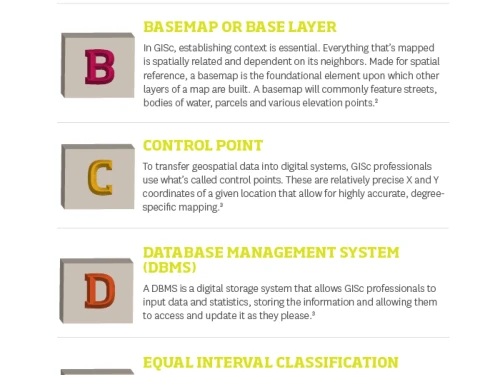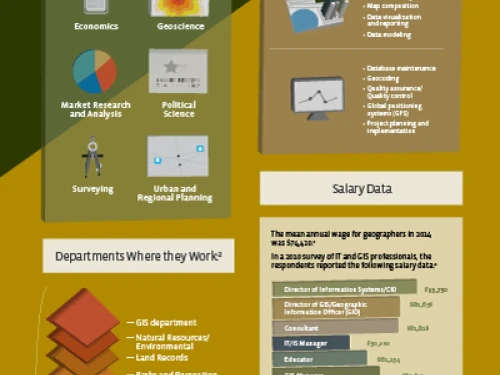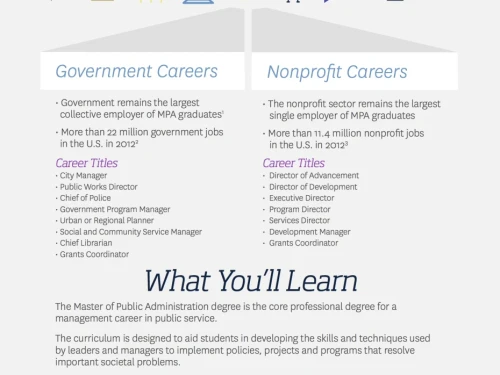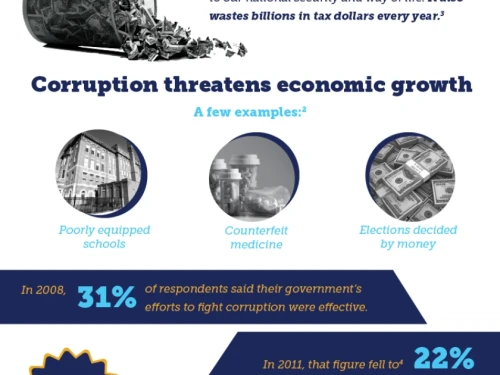College of Arts and Sciences
Discover blog posts focused on Kent State University’s College of Arts and Sciences, showcasing programs that merge technology, social science, and practical applications. Explore degrees such as Cybercriminology, Integrative Studies, and Public Administration, as well as insights into Geographic Information Science (GISc). Learn how these programs help students prepare for dynamic careers through interdisciplinary approaches, faculty expertise, and cutting-edge research.
Related Blog Posts
The geographic information science (GISc) field is a diverse and rapidly growing industry in which some roles are projected to grow by 14% by 2026,1 which makes the role of a GISc technician all the more vital. As we watch natural disasters unfold and the effects of human interference take shape on our planet, the need for GISc expertise and spatial technology prowess is featured daily, worldwide. Additional GISc experience can help environmental protection professionals make significant impacts in solving major global crises like water resources or climate change.
The world of geographic information science (GISc) is filled with unique acronyms, phrases and definitions. Because of this wide range of terminology for tools, technologies and techniques used in the field, a glossary of important terms is as vital as it is extensive.
It should come as no surprise that over 80 percent of adults in the United States use the internet.1 In fact, over half the world’s population owns a smartphone—a technology that relies exclusively on broadband for many of its primary functions.2 So, with the proliferation of internet usage being what it is, you’d expect that a similarly high percentage of citizens have access to affordable and reliable internet.
It’s no secret. The public’s confidence in the government is on the decline. In fact, a stifling 76 percent of citizens believe that political corruption is a critical problem facing us today. According to Kent State University professor Mark Cassell though, “When we talk about failed states, what we’re talking about is failed administrations.”
Data has transformed the way we live. There is so much information available to us these days that we can use it to make pinpoint and informed decisions that go beyond educated guesses or hunches. Data can be leveraged in almost any area of life and industry. Thomas Cuyler, a high school senior at School Without Walls in Rochester, New York, has decided to do both.
Racial segregation in the United States of America can be a sensitive or controversial subject that many people prefer not to discuss. The Civil Rights Act of 1964 was enacted to prevent discrimination based on race, skin color or national origin, and since that time, it might be taken for granted that segregation based on race no longer occurs in the United States.
A Master of Public Administration (MPA) degree helps prepare administrative professionals for advanced positions within the public sector, government and nonprofit organizations. Explore the infographic below to learn how an MPA can help pave the way to more senior job opportunities.
The paths of those who have arrived in public administration careers are varied and sometimes unpredictable. Often, the professionals who serve the public best are the ones who never necessarily saw themselves fulfilling those roles to begin with.
Although not widely discussed, corrupt public figures in the U.S. presents a huge problem.






